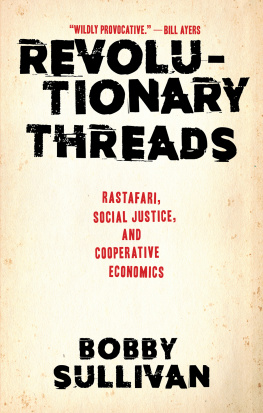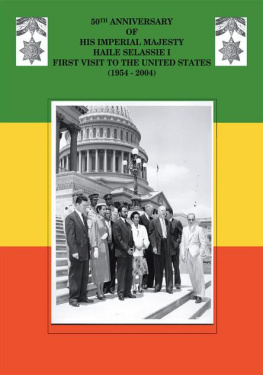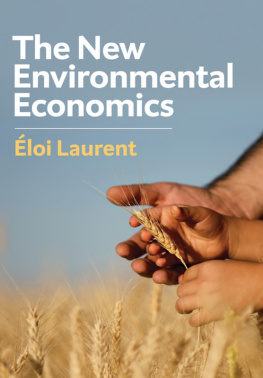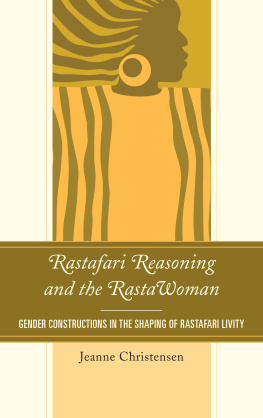
We have sought to build the international unity of the spirit which today constitutes the most important force for good in the search for a lasting world peace and a decent way of life for humanity. With the raising of all men to their rightful dignity and honour as individuals, they will be able to regard their fellows, of whatever nation, of whatever race, of whatever religious, linguistic or historical tradition, as equals, without jealousy, without fear, without undue pride.
Haile Selassie I
INTRODUCTION
This book is a collection of ideas I have gained through my experience as an activist and my participation with the Rastafari ovementI write for my sistren and brethren across the globe. I grew up making music in the punk scene in Washington, DC, which was centered around Dischord Records and the do-it-yourself (DIY) culture that continues to inspire many around the world. I have an international perspective because the city that raised me is a global hub. I have worked for food co-ops for most of my adult life, and this enables me to continue moving toward the goals I aspired to early on: promoting cultural tolerance and equitable relationships in an effort to simply get people to work, and to do it together for the benefit of all.
Each chapter of this book begins with the words to a song I have written, and these lyrics introduce the chapters subject matter. I then describe the historical, cultural, and political significance behind the lyrics meaning. In the ensuing pages, I will seek to expand upon alternative versions of history, citing diverse and colorful perspectives that are routinely neglected and marginalized in Western culture. In order to support my claims, I have cited as many sources as possible, so readers can follow the trail of authors frequently left out of historical records. In many ways, this is my own story too, because while this book is a collage of ideas, the subjects tie together quite nicely in my mind.
The movement of Rastafari is complex and largely misunderstood. There is tension with those trying to understand it, as well as within the movement itself, even regarding the teachings of its figurehead, Haile Selassie Ithe emperor of Ethiopia from 1930 until a political coup in 1974. To further confound outsiders, the cultural context of Jamaica birthed this movement with a black nationalist perspective, yet the teachings of the emperor and some Rasta elders exhibit a more universal/humanist perspective. Because of this, the Rastafari movement is both inclusive and exclusive, and as history has played out, many diverse themes have predominated.
Although this book touches upon many themes, Rastafari is the glue that holds the work together. With that being said, I do not attempt to define Rastafari, as my perspective is derived chiefly from the movements globalization rather than from my exposure to Jamaican elders. Of course, the Rastafari movement in the US has a different flavor than its Jamaican root; it is my belief that American Rastas should not try to emulate Jamaican culture, but instead take inspiration from the movement, especially from Haile Selassie I, and properly apply the sacred practices and teachings to ones own cultural context. In this book, I wish to give credit where credit is due. I want to honor the culture that ignited my journey. In a statement celebrating the work of Rahdakrishnan, Haile Selassie I offered some of his own key ambitions as a world leader: To free the human race from superstition and fear that originate from ignorance; to enable him to transcend the apparent obstacles of race and religion; and to help him recognize the blood-ties of the whole human race.
Although Selassie I uses the word him, he does not hold any lesser view of our sisters in the human family. As I will show you in this book, Haile Selassie Is teachings and the Rastafari movement cannot be reduced to patriarchal orders. As with any spiritual order seeking perfection, notes Jake (John) Homiak, longtime Rastafari chronicler and director of the National Anthropological Archives at the Smithsonian Institution, Rastafari is in a continual state of becoming as individuals and mansions seek to refine their livity.
When I became exposed to diverse and global perspectives, the indoctrination I was raised with began to wither away, and I started to confront challenging realities about my native country. This book considers anticolonialism through the lens of an American grappling with the contradictions of an empire supposedly based on freedom. As an antidote to American hypocrisy, I will introduce the concept of cooperative economics. It is, I believe, the way: it is literally the intersection between democracy and the real economy, and it not so quietly builds a new world within our dying old one.
The Rastafari movement informs my critiques of capitalism. As Joseph Owens points out in his book Dread, Rastafari allows for a variety of perspectives:
Despite a certain value to perceiving the primordial Rasta doctrine before its syncretization with other ideas, the Rasta faith should also be appreciated for its ability to assimilate other doctrines which are in keeping with its own basic thrust. Indeed, much of the vitality and creativity of the Rastas stem from their openness to new ideas and progressive forces.
... Thus the Rastafarians sit and read with the newspaper in one hand, as it were, and the Bible in the other. They search out the manifold correlations between contemporary events and the sacred recorded history. Where correlations are found, they are used to help interpret the precise meaning of the present reality and to divine the course of future events.
With this kind of holistic approach as context, this book plunges into American history, as well as the history of Rastafari, in order to demonstrate why Rastafari offers a suitable cure for contemporary ills. I also explore the American continent before European conquest, shed light on the first European settlements, pause briefly at the Civil War, and jump ahead to the revolutionary movements of the 1960s and 70s.
After surveying these histories, I examine another disturbing reality: through the hands of multinational corporations, fascism stands as the true victor of World War II, and it is alive and well in the US. Fascism has, in fact, morphed into a global force that works to colonize people who lack the means to coexist as partners in the empire of money, which is a term the Zapatistas of Mexcio coined for such international aggression.
Even after my extensive research, Ive concluded that human history is truly a mystery. So much persists by word of mouth, and then gets recorded long after actual events took place. No standardized history book, or any singular source, can possibly deliver our whole incredible story. Therefore, many perspectives need to be considered. Too often, conquerors and power brokers write their own versions of history. This volume hopes to explore different perspectives and introduce narratives and ideas unlikely to be told in conventional historical renderings.
After all, American history is rife with so-called culture bandits, as author Del Jones labeled Elvis Presley. This means that many people, including some rock and rollers, appropriate and repurpose culture that is not their own, profit from it, and ignore the complexities and legacies of colonial history. This cultural highjacking has happened to and even within Rastafari, largely due to the fact that it is decentralized and highly pluralistic. As Jake Homiak posited in When Goldilocks Met the Dreadlocks: Reflections on the Contributions of Carole D. Yawney to Rastafari Studies
Next page








